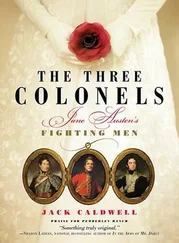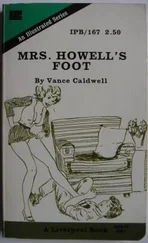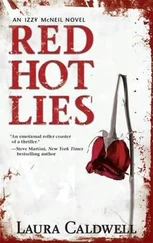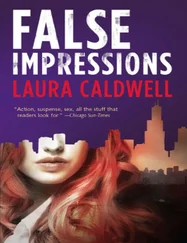Sir Francis leaned closer and took hold of her hand. It took her by surprise and excited her. A warm shiver travelled from her stomach up to her cheeks.
‘Hilda, I have a few days left in London. I want to spend them with you.’
This was the first test. He caught her smile. It gave him the permission he sought, and he moved towards her. It was not a long kiss, but one that brought together two lonely people reeling from the devastation of the war years. For Hilda it opened a chink of light for the future in the gloom of uncertainty, which shrouded her present circumstances.
‘Hilda, tomorrow I have tickets for King Lear . Do you wish to accompany me again?’
‘Of course, I do,’ she said without hesitation.
‘Then I shall collect you at two thirty from your official dwelling.’
‘Two thirty? Is it a matinee performance?’
‘No, it starts at half past seven. I thought a walk around the Serpentine and a bite to eat before the performance. What do you think?’
‘Wonderful, Sir Francis.’
‘Oh, I think it’s time I became plain Francis to you, don’t you?’
Their relationship still had far to go but the journey had begun and she was eager to set out on the path that lay ahead. She stood up and held out a hand to him.
‘Time is moving on. We’d better get going to The Mikado .’
It was a short walk from the Savoy to the Aldwych Theatre. Francis took her hand as they strolled and to all and sundry they were just another happy couple, glad to be together again now the war was over. Her feet seemed to float a few inches above the ground, and she could not have been more content.
The Mikado was wonderful. The tunes stayed in her head for more than a week. She saw herself first as one of the Three Little Maids, then, and more particularly, as a Wandering Minstrel, with her oboe in her hand. Gilbert’s carefully crafted words were sung as if they had been written especially for her that night, and Sullivan’s tunes were foot tapping and unforgettable.
They walked back to her office residence arm in arm, humming some of the songs.
‘I haven’t enjoyed myself so much for a very long time,’ she said.
‘Nor have I. I think we both needed some light entertainment. Tomorrow will be more taxing; King Lear takes on human suffering. God knows how much of that we have all experienced recently.’
On the doorstep of MI6 Sir Francis took hold of her and held her close, and they hugged each other warmly for a few seconds. Then they kissed, for longer than she had anticipated. Hilda felt young again, and more importantly, no longer alone.
How quickly the hours passed. She tried not to worry about what would happen when Francis returned to Finland while she stayed behind in preparation for the trial, yet she enjoyed what each day brought. Many of the animals at London Zoo had been spared by the Blitz, but many had been badly frightened by the bombs and were more timid than they usually were. One example was the green-nosed monkey, a notorious food-snatcher in the Congo, or so Hilda was reliably informed; it clung to its one remaining mate, looking tentatively over its shoulder to see if any member of the human species had come too close.
They enjoyed the sunshine, even the occasional shower, and found joy and humour in everything they did – even a bus trip to Epping Forest although it was beset by delays. A new normality was springing up all around the city. Mobile hot drink carts selling hot drinks had a good trade going, and shop windows were constantly being restocked to cope with the ever-increasing demands of high-spirited demobilised members of the armed forces who were in search of gifts and presents to take home to a loved mother, father, sister or wife. Gifts were also heading home for the relatives of the Canadian, New Zealand, Australian and American forces. Back pay and savings meant service members had money to flaunt; the Americans, in particular, certainly knew how to spend, and had no difficulty enticing young British women to their arms.
On a Saturday morning towards the end of her time with Francis, Hilda received a letter. She was required to sign for it. She had been expecting it for some time. She was not wrong. The citation read that Frau Hilda Richter was to attend the International Court of Justice at Nuremberg. She was cited to be a witness in the case against Herr Gerhardt Eicke. He faced charges for war crimes in Hamburg. Specifically mentioned in the letter was his charge of having been in active command of the ‘cleansing’ of Hamburg, leading to the deportation and subsequent death of thousands of Jews from the city and its environs to the gas chambers of Treblinka and Bergen-Belsen. On her arrival in Nuremberg, on 16 thNovember 1945, she was to report to the office of the chief prosecutor, where her travel expenses would be reimbursed. A reservation at The Hotel Agneshof at 10 Nuremberg-Mitte was arranged. She would stay there as long as it was necessary.
It was with a heavy heart that she informed Francis of her news. Perhaps it was the thought of seeing Eicke again which depressed her. Or maybe the fact that her hours with Francis were dwindling away. Either way, she was not at ease and he could detect it for himself.
That afternoon they walked along the Victoria Embankment. Old Father Thames ebbed and flowed as though nothing had ever happened over the past five years. Lying hidden in its bed, out of sight there were probably unexploded bombs, while the debris of flotsam frequently came to the surface. Some ragged planks of wood floated by the river’s edge. The river was the vein of the city and the detritus which befouled it seemed to symbolize the past six years.
As normality reasserted itself around her, she realised her relationship with Francis was coming to a crossroads. She saw no clear route ahead. Her options seemed both many and few at the same time.
Francis saw some clarity for her. ‘The trial will come to an end,’ he said. ‘And after that, who knows?’
She clung on to his arm and looked up at him. His eyes met hers. He said nothing. He just smiled.
They made their way to the Serpentine later that afternoon and fed the ducks which were beginning to regain their trust in humans as fodder providers. Spare crumbs would have been scarce during the war.
‘Do you see that white swan, Hilda?’
She shaded her eyes and focused on the bird. ‘Yes, beautiful isn’t it?’ she replied.
‘It reminds me of you.’
She nudged Francis playfully in the ribs. ‘What do you mean?’
‘It has survived the war, like you. It hides its feet, which simulate the movement of a paddle steamer below the water surface, but it maintains an elegance and control above water, also like you. And it’s beautiful, just as you are.’
‘I am not a river swimmer; I don’t have a long neck… I…’
‘Not many agents get through the war unscathed, especially double agents. It makes you a very special creature. Just like a swan.’
‘Oh Francis, I cannot decide whether you are profound, or just teasing me.’
He made no reply but gave her a hug instead. She gave up the fight and accepted the compliment.
That night as they ate at Les Trois Couronnes, an elegant French restaurant, the wine gave her a warm glow, and she felt perfectly relaxed. She somehow knew she had crossed the Rubicon in their relationship, and hoped that was what Francis was feeling too.
They gathered their coats and set off in the cool evening to the box in the theatre that Francis had booked. She had not seen a Shakespearian play since her school days, but here in London the magic of the stage unfolded almost every night.
It was King Lear , one of Shakespeare’s longer plays. Hilda knew nothing about it, from her distant education. However, she tried hard to keep her eyes open, while the wine and the heat of the theatre conspired against her best efforts to stay awake. Francis must have been aware and wrapped a supportive arm around her shoulders. He understood the tangle of thoughts in her mind because he was similarly affected. For Hilda it was not only the court case; it was also the knowledge that this growing relationship they had both come to value so highly was about to be severed.
Читать дальше












